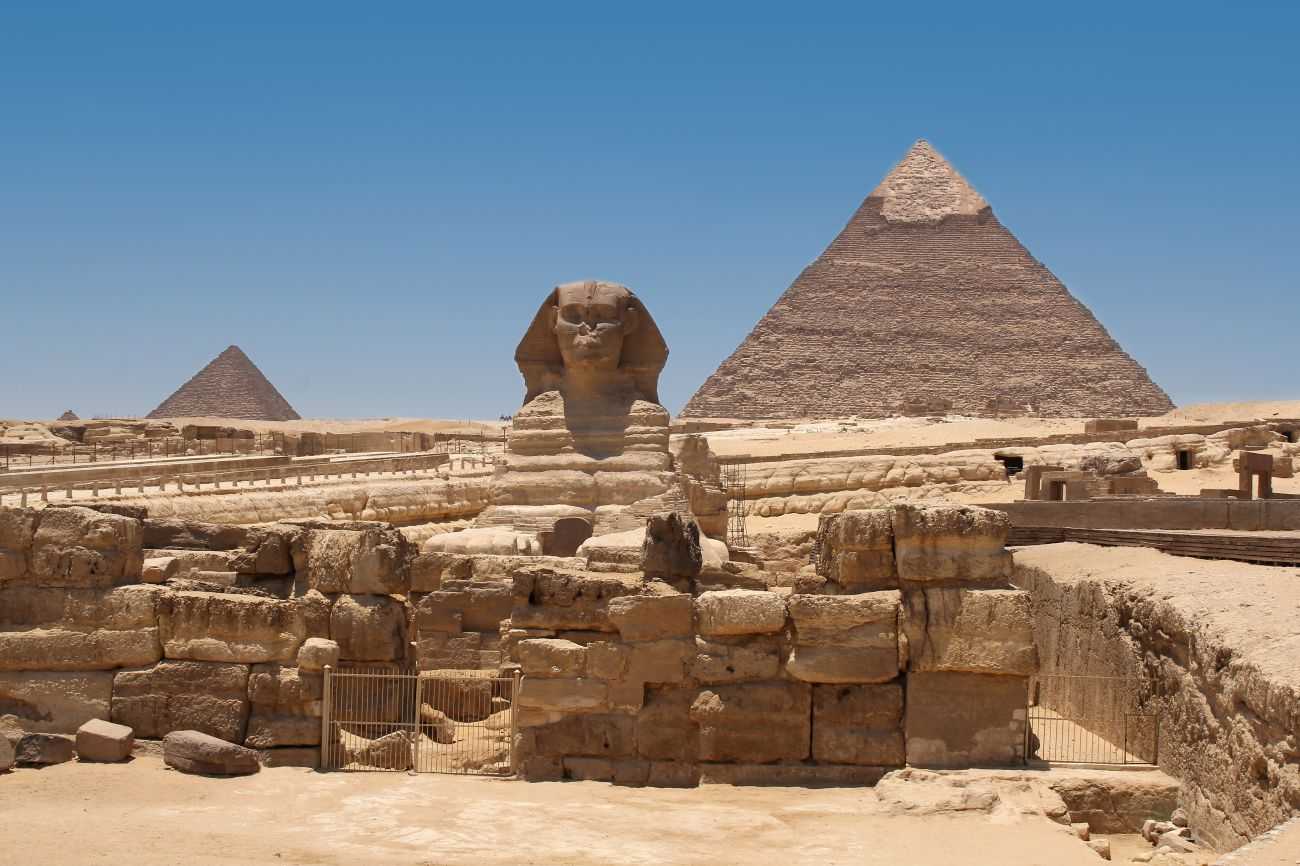
Egypt, officially known as the Arab Republic of Egypt, is mainly located in North Africa while the Sinai Peninsula forms a land bridge to Southwest Asia, making it a transcontinental country. Towards the North, the country is bordered by the Mediterranean Sea while the Red Sea outlines Egypt from the East. To the South of Egypt lies Sudan, Libya in the West and the Gaza Strip and Israel border the Northeast. Spread across an area of about 10,10,000 sq. km, Egypt is one of the most populous countries in Africa as well as the Middle East. Of the estimated 79 million people, majority inhabit the regions near the banks of the Nile River, covering an area of 40,000 sq. km. The densely populated centres of Egypt include Cairo, Alexandria and other major cities, whereas the region covered by Sahara Desert is sparsely populated. The capital of Egypt is Cairo, which is also its largest city. Surrounded by the Mediterranean and Red Sea, Egypt is dominated by the river Nile and its fertile valley, along with the Eastern and Western deserts. Home to the ancient Egyptian civilisation, it is well-known for its temples, hieroglyphs, mummies and above all, the pyramids. Other medieval landmarks like churches and palaces also dot the country. The history of Egypt dates back to the 10th millennium B.C., when a group of hunter-gatherers and fishermen replaced the grain-grinding culture. Climatic changes around 8000 B.C. led to the desiccation of the Sahara Desert. Formation of the pastoral lands was followed by the migration of early tribal people to the Nile River valley. The fertile plains of the Nile River encouraged settlement of Neolithic communities in the region. For the next three millennia, numerous dynasties ruled in Egypt, the last native dynasty was of Persians in 341 B.C. The Persians were later replaced by the Greeks, Romans and Byzantines. In the 7th century, Islam and Arabic language was introduced in Egypt by the Arabs, who ruled over the region for the next six centuries. In the later years till 1517, Egypt was ruled by the Mamluks and Ottoman Turks. With the completion of the Suez Canal in 1869, Egypt became an important world transportation hub. However, it fell into the hands of the British to save the country from debts. In 1922, Egypt became partially independent from British rule, but obtained full sovereignty only after World War II. Egypt is a popular tourist hub with its many archaeological sites, vast deserts and rich marine life. It is also home to one of the seven Wonders of the Ancient World, the Great Pyramids of Giza. Apart from the pyramids, Egypt is also famous for the ancient ruins of Karnak and Luxor temples, dating back to the ancient Egyptian era. Among other major highlights of the country are the Eastern and Western deserts, along with the coastal regions along the Red Sea and Mediterranean Sea. Egypt is also famous for its open-air street market, known as Khan el-Khalili, located in Cairo. The largest of its kinds in Africa and Asia, this market is famous for purchasing all sorts of items and souvenirs, especially brass, copper-ware, Egyptian cotton, jewellery, perfume and others. The landscape of Egypt is diverse, making it suitable for a plethora of activities, ranging from diving to trekking. Besides, the rich marine life of the Red Sea, comprising native species of fish and corals, makes snorkelling and diving quite popular. The best time to visit Egypt, also known as the 'Land of the Sun', is during the cooler months, beginning from October through May.
Copyrights © 2024 Club Liberty. All Right Reserved.